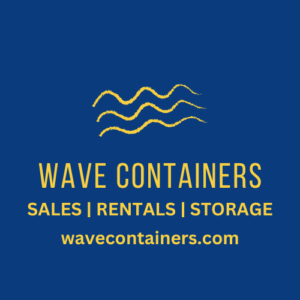Container Storage vs. Traditional Storage Units: Which is Better for You?
When it comes to storing your belongings, whether for personal or business use, you have two primary options: container storage or traditional storage units. Each option has its advantages and drawbacks, and the best choice depends on your specific needs. In this guide, we’ll compare both solutions in terms of cost, security, flexibility, and accessibility to help you determine which is right for you.
1. Understanding Container Storage vs. Traditional Storage Units
What is Container Storage?
Container storage involves using shipping containers as storage units. These containers are typically made of durable steel, are weather-resistant, and can be placed on-site at your location or stored at a facility. Companies like Wave Container Corp offer secure, flexible, and affordable container storage solutions in Vancouver.
One of the key benefits of container storage is that it can be used for various applications, including construction site storage containers for contractors and builders needing to store materials and tools safely.

Container Storage
What are Traditional Storage Units?
Traditional storage units are located in self-storage facilities, where customers rent a unit of a particular size. These facilities may offer climate control, 24/7 surveillance, and on-site security. However, access to stored items is limited to the facility’s hours of operation.
2. Cost Comparison: Which Option Saves You More?
Container Storage
- Lower Monthly Costs: Renting a shipping container rental in Vancouver is often more cost-effective than traditional storage units, especially for long-term use.
- No Hidden Fees: Unlike traditional storage, container self storage doesn’t charge for administration, security deposits, or access fees.
- Flexible Rental Terms: Companies like Wave Container Corp offer flexible rental options, so you only pay for the time you need.
Traditional Storage Units
- Higher Costs Over Time: Monthly fees tend to increase over time, and premium features like climate control come at an extra cost.
- Additional Fees: Many facilities charge late payment fees, insurance fees, and administration fees.
- Limited Rental Terms: Most facilities require long-term contracts, even if you only need storage for a short period.
3. Security: Which Storage Option Offers Better Protection?
Container Storage
- Heavy-Duty Security: Containers are made of solid steel with lockboxes to prevent break-ins.
- Private & Personal Access: You control who has access to your container, reducing the risk of theft.
- Weatherproof Protection: Containers are wind- and water-tight, preventing moisture damage and keeping items secure.
If you need extra security for tools and materials, storage containers offer a robust solution. Many contractors prefer construction site storage containers for on-site equipment storage.
Traditional Storage Units
- Facility-Based Security: Most storage facilities have CCTV cameras, coded access gates, and on-site staff.
- Risk of Break-Ins: Some storage units have thin walls or shared corridors, making them more vulnerable to break-ins compared to standalone containers.
- Limited Access Control: The storage facility manages security, meaning you don’t have full control over who enters the premises.
4. Flexibility & Accessibility: Which Offers More Convenience?
Container Storage
- On-Site Storage Option: Keep your container at your home, business, or construction site for easy and immediate access.
- Portable & Relocatable: Need to move? Your shipping container rental in Vancouver can be transported to a new location without unloading and reloading your items.
- 24/7 Access: Since the container is on-site, you can access your belongings anytime without restrictions.
Many businesses choose shipping containers in Vancouver for their storage needs because of the flexibility and mobility they offer.
Traditional Storage Units
- Restricted Access Hours: Most self-storage facilities operate within set hours, limiting when you can retrieve your belongings.
- No On-Site Storage: Your items are stored off-site, requiring a trip to the facility whenever you need access.
- Fixed Location: Unlike container storage, traditional storage units cannot be moved, meaning you must unload and transport your items manually when relocating.
5. Who Benefits Most from Each Storage Option?
Best for Container Storage:
- Homeowners & Renters: Perfect for renovations, decluttering, or moving.
- Construction & Contractors: Keep tools, equipment, and materials on-site with construction site storage containers for maximum security.
- Retail & Business Owners: Store inventory, seasonal items, or archives with easy access.
- Event Organizers: Ideal for storing event equipment and supplies.
Best for Traditional Storage Units:
- People Who Need Climate Control: Some items, like antiques, wine, and electronics, need temperature and humidity control.
- Those Who Don’t Need Frequent Access: If you only need occasional access to your belongings, a storage facility may work for you.
- Short-Term Renters with Minimal Items: If you just need a small space for a short period, a storage facility might be more practical.
Read here : VANCOUVER CONTAINER RENTAL
Final Verdict: Which Storage Option is Best for You?
If you need secure, cost-effective, and flexible storage with flexible access, container storage is the superior option. Wave Container Corp, a trusted storage provider in Vancouver, offers durable, weatherproof, and affordable shipping containers in Vancouver for sale, rental, and self-storage. Whether for personal, business, or construction site storage containers, container storage provides greater convenience and security than traditional storage units.
However, if you require climate-controlled storage or don’t need frequent access, a traditional storage unit may be more suitable.
Get Reliable Container Storage in Vancouver with Wave Container Corp
Ready to upgrade to a more convenient storage solution? Wave Container Corp offers secure, flexible, and affordable container self storage options in Vancouver.
Email us at info@wavecontainers.com or call us today at 604-694-7772 for a quote online and get started!













